With a brief look at some notables along the road, Chang Terhune’s Music Mondays aims to shed light on both new and old(er) music over a wide spectrum of sound (and vision). This week, RIP Damo Suzuki

Sing Swan Song” — RIP Damo Suzuki
CAN are the third most famous band out of Germany after The Scorpions and Kraftwerk. Yet their legacy might reach as far or further than the others given their relatively short period of greatest work and the mystery thereof. Their first album Monster Movie (Mute) was recorded with Malcolm Mooney as their singer who departed shortly thereafter. Then one day Holger Czukay and Jake Liebzeit—bassist and drummer of CAN respectively—met Kenji “Damo” Suzuki outside of a café. The meeting was clearly fortuitous as they invited Damo to sing with the band at a gig that night. Suzuki was only 20 at the time, having left Kobe, Japan to busk his way across Europe until that fateful meeting. He would remain with he band until quitting the music business in 1974.
At the time, CAN had yet to solidify into the juggernaut it would become. Soundtracks (Mute) is an amazing album fusing blues influenced rock common at the time with each member’s unique knowledge of composition and arrangement. As students of Stockhausen they were extremely open to experimentation which Suzuki took and ran with. It’s not surprising then that his time with the band was short-lived. The fury and cosmic weirdness on these albums burn hotter than most humans could handle for one year let alone four.
Here’s but a few examples of Damo Suzuki’s work while fronting CAN.
“Don’t Turn the Light On, Leave Me Alone” — Suzuki’s first recorded song with the band. Already they were gelling as a band, working with Suzuki’s lyrics and lazy delivery whipping the song up into a folky, cosmic dervish whirl:
“Mother Sky” — Early on the band developed a style of rhythmic, ritual repetition. Many of their songs are rooted in a simple drumbeat and bass part over which the rest of the band plies their sonic wares. ‘Mother Sky’ does this until about halfway through then returns to blast the listener in, out, through and beyond multiple dimensions. It’s one of their most covered songs and like most covers nothing compares to the original.
“Vitamin C” — Possibly the most famous CAN track of all that despite hearing it frequently I can never not stop and play it from the beginning several times. Inherent Vice would be one of my favorite films even without it, yet when it opens the film, it’s a perfect song for the setting (early 1970s Southern California). The song works because of the concerted effort put forth by the whole, but it’s largely driven by two elements: Jake Liebzeit’s tight, regimented drumming and Damo Suzuki’s unearthly voice. If reduced to just those elements the song remains just as powerful and without them it’s a pointless rambling jam. Which is both astounding and terrifying to my ears. I’d like to see Steppenwolf do that.
“Oh Yeah” — A few years ago I parted ways with someone who dismissed CAN as “weak ass 1960s German Steppenwolf.” Clearly they’d never delved deeper than a few songs before rendering this immensely shallow judgement. Had they come across “Oh Yeah,” I suspect they’d be a fan. The song is among my favorites of Suzuki’s with CAN. It drives in along with an unrelenting backbeat as the band weaves mystery with the repeated riff. Suzuki’s voice is at times soft, at times loud and occasionally even backwards. The video of it is pure 1960s acid psychedelia while the music clearly comes from someplace else.
The live version of this is somehow more chaotic. Again note how the audience is bewildered, bewitched and blown away.
“Turtles Have Short Legs” — Not all their songs were high powered psychedelic jams. CAN did have a playful side as evidenced by this track. This track for instance. All the parts in place with the band performing at high efficiency with just a little bit of a smile.
“Sing Swan Song” — This is perhaps CAN’s most somber, melancholic and dreamy track. Wonderful to play at dusk or during a rainstorm.
“Paperhouse” (Live) — Perhaps the best way to understand Suzuki’s and the band’s impact on the music scene is with their live recordings. YouTube has some amazing examples. While the entire band is fascinating to watch, take note of Suzuki himself and the audience reactions. As a country only not even twenty-five years out of World War II the youth clearly are overwhelmed by the band. They’re either so shocked as to look bored, covering their ears or driven into a frenzy like The Beatles on Ed Sullivan if the entire theatre were pumped full of aerosolized crank.
“Spoon” — “Spoon” is another psychedelic banger. Otherworldly in all respects, the strange tremolo pulse, the thudding tribal drums, the thumping heartbeat of the bass push you into worlds of wonder. Live it must have been absolutely insane. So insane the band had a magician onstage.
Rockpalast 1970 Live show — I strongly recommend watching the entirety of this live show for the sheer weirdness of it: the music, the band and the audience reaction. Remember most of those present were born after World War II though the studio technicians appear a little older. The band has the longest hair in the room outside of the ladies and no one appears to have a solid grasp of what’s going on the whole time (the dancer onstage as well). This is the result of many things on a larger cultural, global scale but more importantly the result of chance meeting and collision.
RIP Damo Suzuki.
Photo courtesy of Wikipedia.






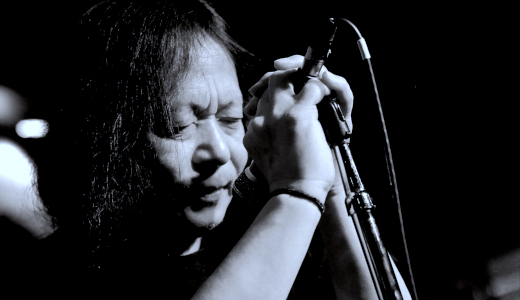
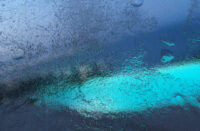
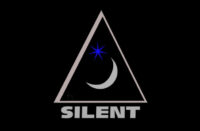



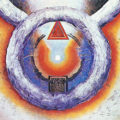
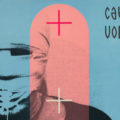
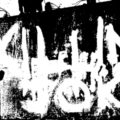
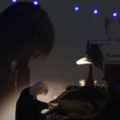


![Pole :: Tempus Remixes (Mute) — [concise]](https://igloomag.com/wp/wp-content/uploads/2025/04/pole-tempus-remixes_feat-75x75.jpg)






![Hasbeen :: Bunker Symphonies II (Clean Error) — [concise]](https://igloomag.com/wp/wp-content/uploads/2025/04/hasbeen-bunker-symphonies-ii_feat-75x75.jpg)
